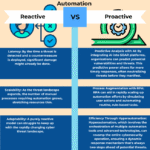What actually gives value to Bitcoin is the Blockchain and what is the Blockchain? It is the database where the monetary transactions that you make with bitcoin are recorded, it is nothing more than an accounting ledger where the operations they are encrypted and the blocks are added one after the other and cannot be modified or altered. This is possible under certain conditions, to date they have not managed to hack this network and that gives great value because it is what ultimately allows us to trust this cryptocurrency such as Bitcoin.
With the Blockchain, not only can a currency be made as is the case with bitcoin, but any other asset can also be stored. NFT’s can be stored, a Blockchain of public finance can be created. We can store information that cannot be modified or altered and therefore may be may be available to a group of companies or a group of interested parties. This is why the Blockchain is of interest to us as a Crypto Accountant in Denver, CO.
What is Blockchain for?
This Blockchain is the future of public, civil, money, banks, contracts, etc. registries. Why? Because this is going to be a decentralized entity. The problem when we trust an entity that is central, for example, the central bank of money, is that it can arbitrarily decide on our money and property. Because it is decentralized and this allows a series of applications that will be seen in the future, we are currently at the beginning of this era.
Now I tell you who can trust a centralized entity, if those who manage that entity are not trustworthy people and for that the Blockchain has come to revolutionize all this. Something that caught my attention in the research I did is already talking about ERPs that work on the Blockchain, for what purpose would they do it? To better explain what an ERP is, it is a system that centralizes all the operations of the company so that all the employees of that company can have access to information on purchases, accounts receivable, etc. and all of this will be centralized in a server and everyone can access within that institution. Those ERPs that run on this Blockchain could have this public information. For what purpose? Well, what would happen then if transactions between companies such as accounts receivable, accounts payable, purchase and sales operations were settled in this Blockchain and collections and payments could be made through them to guarantee compliance, that is, two companies who do not know or trust each other could carry out this transaction through the Blockchain and that would provide security for those who participate in this ERP so they can operate with each other without problems and without fear of not being paid, etc.
Audit the Blockchain
You should know that there is a regulation on how to operate with bitcoin, basically what that means is a series of protocols that allow us to do this, that is, guarantee that the operations that are in the Blockchain can identify who is behind of that transaction. Despite the fact that the Blockchain is public and that it can be audited, it will always be difficult to know who is behind an address, since a bitcoin address is a combination of letters and numbers and does not show you the personal data of the person who is doing the transaction. .
In the case of auditors and accountants, they have to take this care so that those companies that are going to be audited can comply with this regulation and that is also in the regulations of the bitcoin law.











